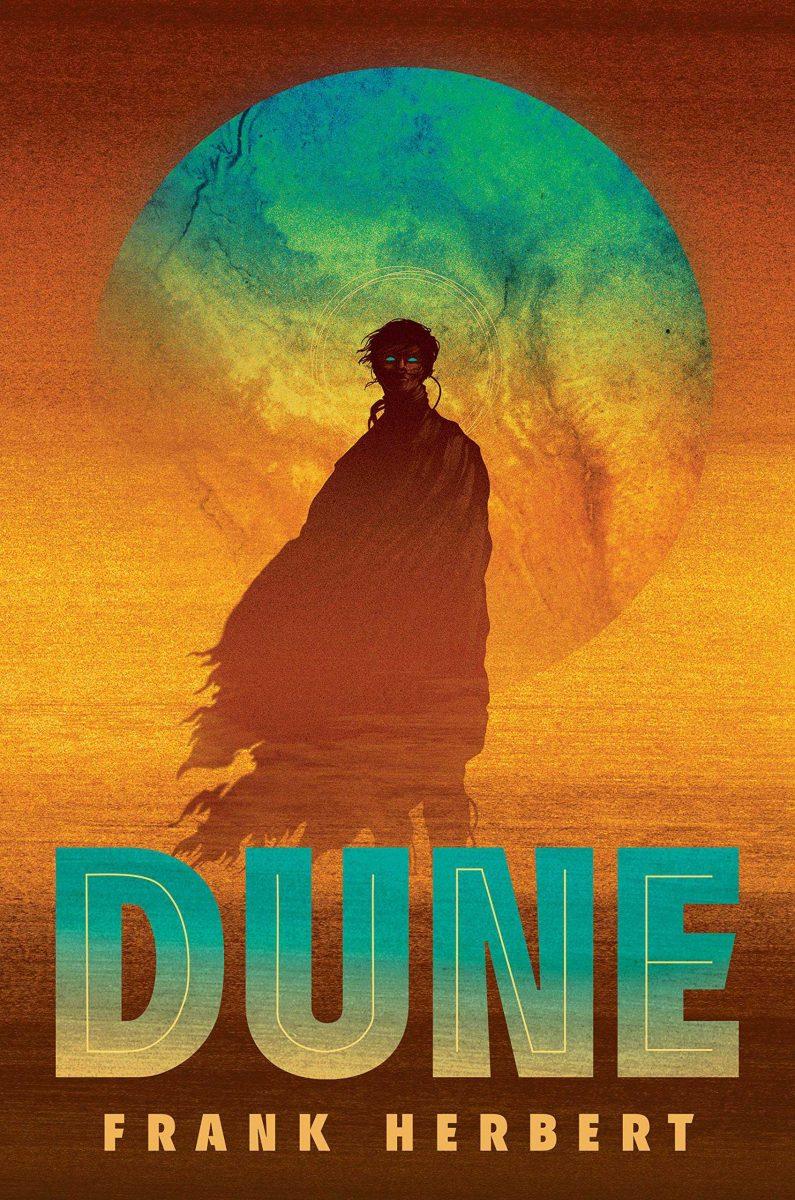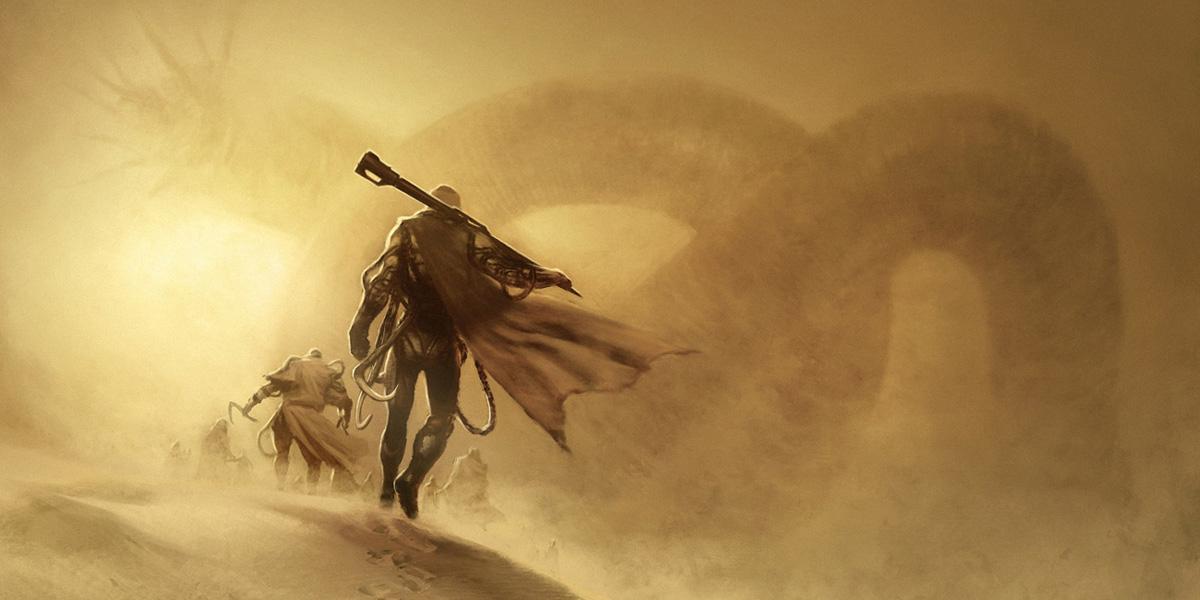“Arrakis. Dune. Desert Planet”
The time for Denis Villeneuve’s cinematic adaptation of ‘Dune’ is nearly upon us! The film just premiered at the 78th Venice International Film Festival to some rave reviews calling it “epic” and a “made-for-theater-experience” which is all very exciting stuff, but I’m not here to write about the upcoming movie. I am here to implore you to read Frank Herbert’s legendary science fiction novel, “Dune” (1965).
Do you love “Star Wars?” “Game of Thrones?” Science-fiction? High fantasy? Religion? Politics? Technology? Ecology? Worms? WORMS?
Well, then Dune is just the book for you. Initially published by Herbert as a three-part series in Analog Science Fiction magazine from December 1963 to February 1964, the novel was released to the masses in 1965, fundamentally changing the landscape of science fiction writing akin to what Tolkien did with “The Lord of the Rings” for the fantasy genre. It’s a game-changing novel that entices and rivets from start to finish, which makes total sense as it is the world’s bestselling sci-fi novel of all time.
The plot of “Dune” is wildly complex. Set in the distant future where space travel is possible and noble houses rule over planets through fiefs, the multilayered story revolves around Paul Atreides, heir apparent of House Atreides, after his father, Duke Leto, accepts ownership of the harsh desert planet Arrakis. This planet is the solitary source of the highly coveted mélange, or “the spice,” that makes space travel possible and extends human life, mental capabilities and physical strength.
Mining of the spice is difficult on Arrakis due to its inhabitants of sandworms, vicious creatures of mountainous size that roam the dunes and are attracted to the spice mining. Needless to say, the Atreides being the ruler fiefs of Arrakis is a challenge in and of itself that is further complicated by betrayal, conspiracy and their sadistic rival, House Harkonnen. What I’ve summarized thus far is only the tip of the iceberg as there are other people, organizations and fell forces with their own agendas working against the Atreides.
Did I lose you? Does your head hurt yet?
I surely hope not, because while “Dune” throws alien concepts as well as words and phrases that will keep you flipping to and from the appendix, the rewards of this challenging, intricate novel are so rich and satisfying, deeming it worth the read. I genuinely can’t remember the last time I read a story that kept me this engaged and invested in multiple characters while also being truly stimulating in its ruminations on politics, religion and technology. Herbert draws from a vast array of religions like Christianity, Judaism, Islam and Hinduism to tell a story of intergalactic proportions which the likes of humans have never witnessed before. Another impressive facet of “Dune” is how it draws from ancient languages like Latin, Hebrew and Old English.
It is immensely fascinating with its allegorical elements, interpersonal dialogue, abundant symbolism, allusions to today’s society and, above all, its enjoyable story. The most ironic part of the book is how it asks you to wrap your mind around all this heavy jargon, but has characters named Paul, Jessica and Duncan.
In short, this book is unlike anything I have ever read and a must-read pioneer of its genre that is worth the time, head-spinning terminology and sandworms alike.
Dune has been the subject of troubled film and television adaptations since as early as the 1970s with Chilean-French director Alejandro Jodorowsky making an unsuccessful attempt at adapting the novel into a nearly fourteen-hour-long movie, with Paul being portrayed by the director’s son and Pink Floyd scoring the film. David Lynch also made a go at it with his cult-classic adaptation in 1984 which opened to poor reviews, but hopefully, Denis Villeneuve can pull it off.
Then again, this article isn’t about the movie. It’s about reading the book, so just read “Dune.” You won’t regret it.





